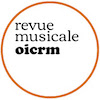-
Vol. 9 nº 2, décembre 2022
Malgré l’abondance de preuves subjectives indiquant que diverses approches de rééducation peuvent permettre aux musicien·ne·s de bouger plus librement et avec moins de douleur, ou peuvent atténuer un certain degré de stress et d’anxiété, force est de constater un manque de données objectives confirmant les avantages de ces approches. Les effets véritables de la réhabilitation doivent être évalués scientifiquement. Ce numéro thématique sur la santé et le bien-être des musicien·ne·s apportera ainsi un éclairage nouveau sur le sujet et apportera des connaissances aux chercheur·euse·s dans le domaine, aux étudiant·e·s et aux musicien·ne·s, et aux praticien·ne·s professionnel·le·s qui travaillent avec les musicien·ne·s pour augmenter leur bien-être général lorsqu’ils jouent de leur instrument de musique.
-
Vol. 8 nº 1, juin 2021
Performance anxiety is a serious concern for many musicians, causing behavioural, physiological, and psychological distress, and often impairing performance quality (Kenny 2011). In recent years, the experience of school age musicians has been considered, with findings indicating that performance anxiety is present in many people from an early age—potentially from the earliest performances. Questions have been raised as to the innate or developed nature of performance anxiety, with preliminary findings suggesting that both may be relevant (Boucher and Ryan 2011). This study sought to investigate the experience of music performance anxiety in young pianists’ lessons and performances.
Results indicate that self-esteem and practice are significant predictors of MPA, with self-esteem having the most notable effect. Almost half of the participants reported feeling nervous in their lessons at least some of the time. Most students noted that their teachers encourage them to perform; however, less than half reported that their teachers address performance preparation issues, or discuss memorization strategies or performance anxiety with them. Less than a third of the participants reported that their teacher holds classes that simulated performance situations, such as a studio dress rehearsal.
ISSN : 2368-7061
© 2025 OICRM / Tous droits réservés
